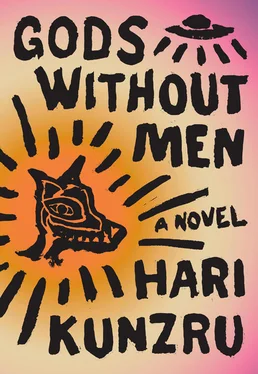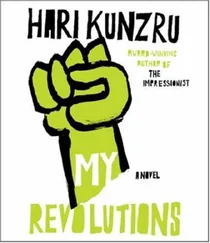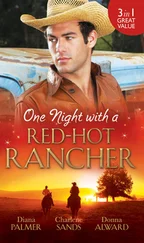At last he flopped into bed, dropping seamlessly out of consciousness and into the Bois de Belleau under heavy nighttime bombardment. Blue lightning flashes outlined splintering trees; shell bursts silhouetted running men and cascades of rock and earth. He was standing at the edge of a crater, shouting words of encouragement to troops that were no longer there. The whole scene was taking place in silence. He could touch things, see things — the vibration of the ground, the tangled undergrowth — but the only sound was a high-pitched insect whine. He woke into a blaze of winter sunlight, not knowing where or even who he was. For a few blissful seconds he was just a consciousness, a presence in the clean white flare, there to apprehend it for its own sake, without story or purpose or lack of any kind.
He dressed and went over to the Chinaman’s, where he found a table of local worthies setting the world to rights over plates of greasy eggs. Among them was Ellis Waghorn, the Indian agent. Deighton had never been able to fathom why Waghorn worked for the Bureau of Indian Affairs. He spent as little time as possible on the reservations under his jurisdiction. Local rumor had it that his interests lay more with redrawing reservation land boundaries to the benefit of the Southern Pacific Railroad than with the welfare of native people. He was talking to the pharmacist and the owner of the general store. They nodded a greeting. Waghorn smirked, his mouth full of cornbread.
“Morning, Professor. Caught yourself any interesting diseases out there at Kairo?”
Deighton shrugged. For months, Waghorn had been insinuating that “some squaw” was the real reason for his interest in the Indian band at the oasis. As furious as the suggestion made him, he never took the bait. Waghorn pressed on.
“We were just discussing the lights Old Man Parker saw a few nights back. You see anything out where you were?”
“Lights?”
“Floating lights. Bill Parker said they was just hanging there like Edison bulbs.”
“I didn’t see anything of that sort.”
“So what are you up to out in the desert if it ain’t watching the stars?”
He ignored the other men’s hearty laughter. “Same as ever. Language work, mostly. They have a very unusual grammatical structure.”
“That a fact?”
“Actually, Mr. Waghorn, I have a question for you. Do you know of any recent intermarriages among the Indians out at Kairo?”
“How do you mean?”
“Well, Indian men and white women?”
“No, sir, I should say not. They keep themselves to themselves.”
“It’s just — well, I saw a white child.”
“Half-breed, you say?”
“No, white. Very white, as a matter of fact. Boy about five years old. Walking along hand in hand with an Indian man.”
By now, people at neighboring tables were taking an interest.
“Hear that, Ben? Some Indian’s got hold of a white boy.”
“What do you mean, ‘got hold of’?”
“Professor saw him.”
“You sure about this?” asked Waghorn. “Where was it?”
“I don’t think it was — that is, I don’t think there was anything untoward about it. The boy seemed happy.”
“I ain’t heard of no one losing a child,” said Tompkins the pharmacist.
Waghorn looked puzzled. “Me neither. And this was out at Kairo? Who was the Indian?”
“It was — hard to say. I didn’t see his face.”
“Probably weren’t nothing. Just some breed. Lot of them are light-skinned.”
That seemed to be the end of it, but as Deighton pushed his food around his plate, he regretted bringing the matter up. All day he went about his business with the nagging sense that he’d set something in motion that would have consequences. He wrote his letters — to the Bureau, asking for more funds, to his sister, declining an invitation to spend Christmas with her family in Boston — then picked up a parcel of books from the post office and dropped off his dirty clothes with the Chinaman’s brother, who ran a laundry next to the feed store. That night he stayed up late with the Spanish friar’s book, trying to imagine how it must have felt to walk through the high desert, utterly alone.
The next morning he was woken by a noise outside the window. He raised the dust-smeared sash to see a ragged group of People, among them Joe Pine, being marched toward the sheriff’s office. He pulled on his pants and rushed down, joining a considerable crowd, all jostling to get as near as possible to the door.
“What’s going on here?”
“Kidnapping. Sheriff’s pulled in them Indians to ask about it.”
“Who’s been kidnapped?”
“Little boy from round Ludlow way.”
“Kairo, so as I heard.”
Deighton shouldered his way through, brushing aside a deputy who tried to bar his way. In the office Joe and his friends were lined up in front of Sheriff Calhoun, who was marching about in front of them, barking out questions like a drill sergeant. Waghorn was in the room, as well as a man he recognized as Danville Craw, the owner of the Bar-T Ranch, which bordered BIA land out near Kairo.
“Professor.”
“Mr. Waghorn. Sheriff.”
“We’re kind of busy here, Deighton.”
“Professor’s the one first saw the kid. Three nights ago, weren’t it?”
“That’s right. I was at Kairo, a little after sunset. I saw a small boy walking along with an Indian man. Lord knows where they were headed. You say he’d been kidnapped?”
Sheriff Calhoun wiped his bald head with a handkerchief. With his bull neck and a drinker’s complexion, he made a sharp contrast to the Indian agent and the rancher, both of whom had a lean, scavenging look. “Well,” he said. “We don’t know exactly what’s gone on, but that’s how it looks. Mr. Craw here saw them on his land last night.”
“I rode after them, but they must have hid themselves. It was rough country, out near Paiute Holes. A lot of boulders and such. Anyways, I lost them.”
“Isn’t the Bar-T west of Kairo?”
“That’s right.”
“When I saw them, they were headed east.”
“Must have doubled back.”
“Are these men suspects?”
“We ain’t got round to questioning them yet. Mr. Craw found them camped out in the same spot just after. None of them could say what they were doing on his land, so he and his boys brought them in.”
Joe and his companions were all stolidly looking at the floor. The others didn’t look familiar. Deighton thought they might be from one of the bands that worked the cattle ranches on the other side of the Colorado.
“Can I speak to them?”
“Professor knows their lingo.”
“I’m not sure. This is police business.”
Deighton was fairly sure he knew what they were doing at Paiute Holes. Segunda had once named it as a site on the Mule Deer song. In the days before disease and dispossession, the songs used to function both as hunting routes and as a way of organizing esoteric clan knowledge. The songs were narratives, and when one of the People died, it was traditional to chant them in their entirety, starting at dusk and ending at dawn, sending the soul of the departed on its way to the Land of the Dead via the places that meant most to them when they were alive. This system fascinated Deighton; so much of it had collapsed. The elders died without transmitting their songs; family groups were scattered. Joe and his friends had probably walked out there to sing for a dead clansman. It would have been a matter of indifference to them that it was Craw’s land, the idea that anyone could actually own land being more or less meaningless in their culture. But there was no way they would or could explain any of that to Calhoun, particularly with Waghorn present.
Читать дальше












